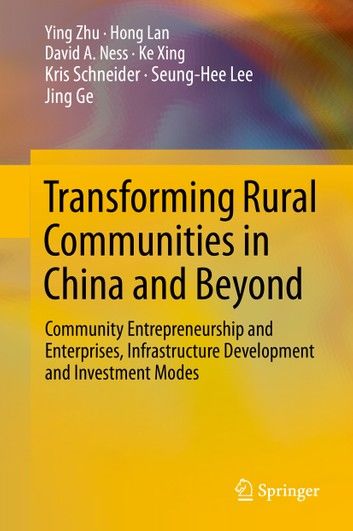| FindBook |
|
有 1 項符合
Kris Schneider的圖書 |
 |
$ 1603 電子書 | Transforming Rural Communities in China and Beyond
作者:Ying Zhu,Hong Lan,David A. Ness,Ke Xing,Kris Schneider,Seung-Hee Lee,Jing Ge 出版社:Springer International Publishing 出版日期:2014-11-01 語言:英文  看圖書介紹 看圖書介紹
|
|
|
This book represents one of the first attempts by a multidisciplinary research team, encompassing the social sciences, business, architecture and planning, engineering, and finance and economics, to help rural communities discover sustainable and self-reliant paths to development and transformation.
The opening chapter outlines the background of the research, its importance in the context of China and other countries, the rationale for choosing the case study communities in rural China, and the composition of the research team. Chapter 2 explores key issues in the role of social entrepreneurship and leadership in rural community development. Chapter 3 analyses a green platform for a pilot transaction of China forest carbon sinks led by the Huadong Forestry Exchange. The fourth chapter examines carbon trade, forestry land rights, and the livelihoods of farmers in rural Chinese communities. Chapter 5 explores alternative energy development in rural Chinese communities, where the poor are often disproportionately dependent on fuel wood and solid biomass, causing environmental degradation, reduced productivity and the decline of income generating opportunities. Chapter 6 examines and tests the proposition that stronger communities will result from ‘connected up’, holistic, synergistic and inclusive planning of services and supporting infrastructure. Chapter 7 analyzes information and communications technology (ICT) based service innovations for supporting rural community enterprises. Chapter 8 highlights key elements of stronger rural communities, drawing together the themes and proposals of preceding chapters and constructing an integrated model.
The authors demonstrate that interconnected community enterprises based on clean forest products, forest carbon and ecotourism can be underpinned by local infrastructure enterprises such as renewable energy, water, waste management, ICT and transport, and financial mechanisms like carbon finance, all involving skills development, leadership and social entrepreneurship coupled with corporate and investment partnerships. Such interconnected approaches are expected to generate increased employment and prosperity, improve social livelihoods, and benefit the environment.
|











